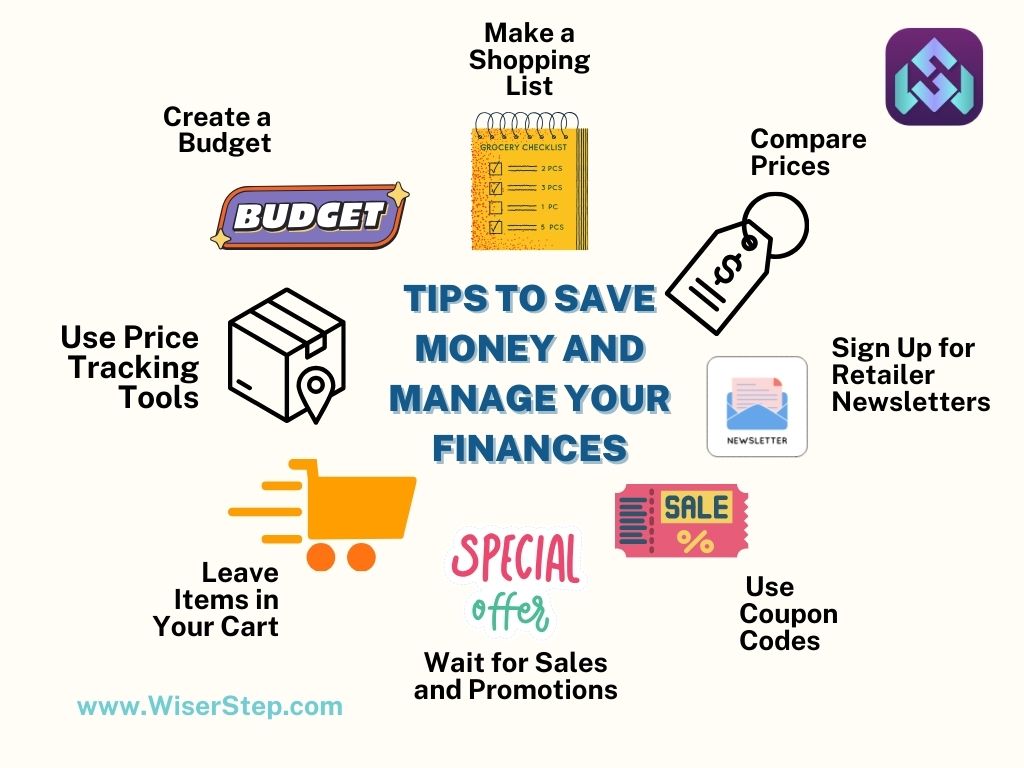In today’s digital age, shopping online has become a convenient and popular way to purchase everything from groceries to electronics. However, it’s also easy to overspend and impulse-buy when you’re just a few clicks away from making a purchase. To help you manage your finances and save money while shopping online, we’ve compiled some practical tips for you.
Create a Budget
Just like you would for traditional shopping, set a budget for your online purchases. Knowing your spending limits can help you avoid impulse buying and stay within your financial boundaries.
Make a Shopping List
Before you start browsing online stores, make a list of the items you need. Stick to this list as closely as possible to prevent buying unnecessary items.
Compare Prices
One of the biggest advantages of online shopping is the ability to compare prices easily. Use price comparison websites and browser extensions that automatically find the best deals for the products you want.
Sign Up for Retailer Newsletter
Many online retailers offer exclusive discounts and promotions to their email subscribers. Sign up for newsletters from your favorite stores and check them as and when needed to stay informed about upcoming sales and special offers.
Use Coupon Codes
Before completing your purchase, search for coupon codes or promotional discounts related to the store or product. There are various websites and browser extensions dedicated to finding and applying coupons for you.
Take Advantage of Cashback and Rewards Programs
Several websites and apps offer cashback or rewards for shopping through their links. Consider joining these programs to earn money back on your purchases.
Wait for Sales and Promotions
Patience can save you a lot of money. Many online retailers have seasonal sales, holiday promotions, and special events where you can find products at significantly reduced prices.
Leave Items in Your Cart
Some online retailers may offer discounts or send reminders to encourage you to complete your purchase if you leave items in your shopping cart without checking out.
Use Price Tracking Tools
Price tracking tools can help you monitor the price history of products. This information can help you decide when it’s the right time to buy.
Consider Generic Brands
While name brands may be appealing, generic or store-brand products are often cheaper and can be of comparable quality. Don’t overlook them when shopping online.
Shop During Off-Peak Times
Prices may fluctuate throughout the day and week. Try shopping during off-peak hours or on weekdays when fewer people are browsing, as some retailers adjust prices based on demand.
Use a Dedicated Shopping Account
Consider creating a separate email account and payment method for online shopping. This can help you track your online spending more effectively and reduce the temptation to make impulsive purchases.
Read Reviews and Research Products
Take the time to read product reviews and conduct thorough research before making a purchase. This can help you avoid buying items that don’t meet your expectations.
Utilize Free Shipping
Look for online retailers that offer free shipping, especially if you’re making a larger purchase. Paying for shipping can add significant costs to your order.
Track Your Spending
Keep a record of your online purchases and expenses. This will help you stay on top of your finances and identify areas where you might be overspending.
Delete Shopping Apps
If you find yourself constantly tempted by shopping apps on your phone, consider deleting them. Accessing online stores through a browser can add an extra step, giving you more time to think before making a purchase.
By following these tips and being mindful of your online shopping habits, you can save money, stay within your budget, and effectively manage your finances. Online shopping can be a powerful tool for convenience and savings, as long as you use it wisely

